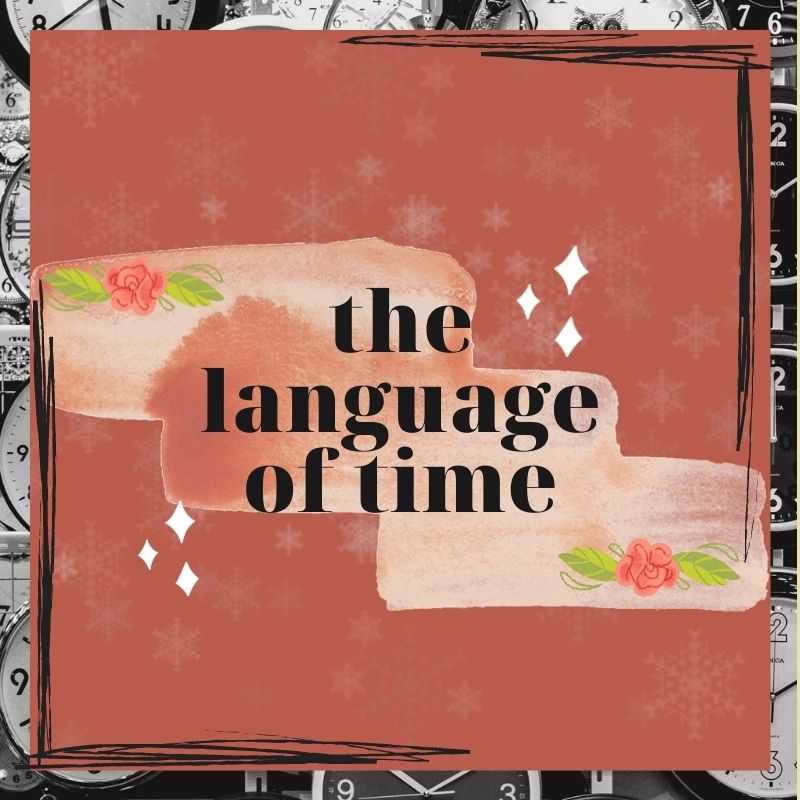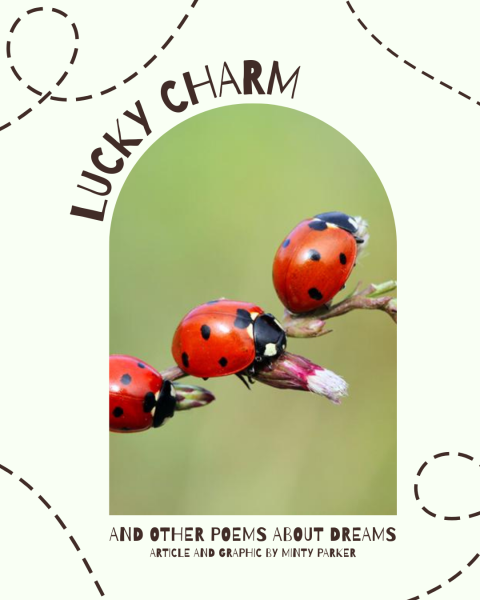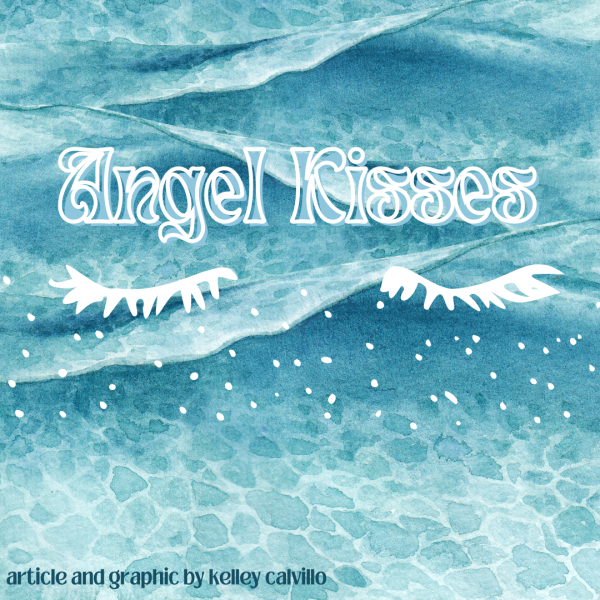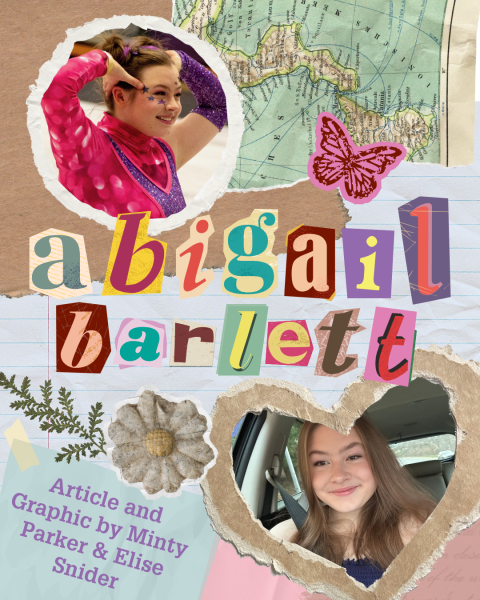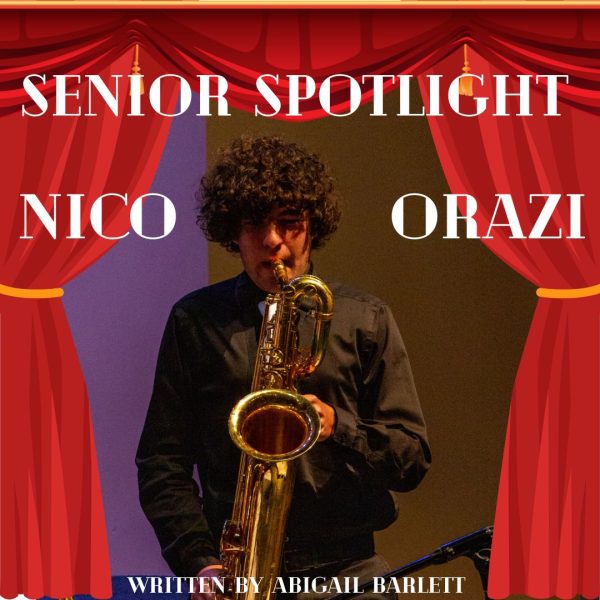The Language of Time
It’s winter again, and with it comes the snow. It’s not so bad, but the cold is an old enemy. It knows its way through the holes in my sweater, as small as they might be, and always finds a path straight to my creaking bones. My gloves protect my hands just enough to hold them together until I get to the warmth of my shop. There was a time when the clocks would all greet me with bells as I would step through the door, but, as much as I love their laughter, it’s too dangerous to hurry down such a narrow, icy sidewalk at this age to arrive at eight on the dot. Maybe when the cold quits its gnawing on my knees, I won’t be so late.
I don’t get customers very often anymore, but I don’t mind. This was never really for them anyway. The clocks keep me company. Each one sounds different from the next. When I first started out building them, I was seven years old. My father taught me everything to know about clockmaking. When this shop belonged to him, every clock would tick as one. A single, rigid heartbeat pounding inside your head. When one would fall out of sync, it would be my job to set it right. Ever since I inherited the shop, I’ve done my best to keep them ticking in rigid synchronicity, just like Dad did.
Right at nine o’clock, a flurry of snowballs hits the big front window, each with a loud thud. I glance up from my work to see a group of children running down the street, more snowballs in hand for the next shop they plan to target. I continue my work for another ten minutes before convincing myself to brave the cold again. The neighborhood kids are sledding down the sidewalk now, so I stand in my doorway until they pass. When they do, it disrupts two little brown sparrows that had been pecking the ground next to my window, who then fly up to perch on the awning above me. The wind brings an icy chill over my shoulders like a blanket of thorns. All the more reason to finish up quickly so I can go back inside.
As I clean the window, I watch the children playing down the street. I know many of them from visiting the shop with their parents. Aside from their occasional antics, they’re good kids. Maria loved them, and they loved her. She’s really the one who kept this shop together. In the spring, she would always pick the best flowers from our garden to paint wherever she could, which mostly ended up being on whichever clock I finished that day. The neighborhood kids would watch her work in quiet awe. In the summer, she would feed the birds outside the door straight from her hands and teach the children how to hold still just long enough to do the same. In the fall, she would play the accordion and the children would dance and sing along. The winter was always best, though. She made the most delicious hot chocolate. The children rarely spoke to me, I was just Miss Maria’s husband to them.
I finish wiping off the window and return to my work. Today’s task is fixing up an old bracket clock that had completely stopped working some time ago. Delicate pink painted roses decorate its face. I built this one almost fifty years ago, the same summer that Maria married me. By the time the ceremony was over, her pink rose bouquet was already threatening to wilt in her hands. She chose to immortalize that day by painting the waning blooms on the little clock I had built for her. She kept it on her nightstand for forty-seven years. I taught her how to wind it so she never had to go a day without hearing its rhythmic tick. Soon after, she asked if she could help me wind the clocks in the shop as well. Dad would have loved her. She was as in sync as the clocks were and knew even before I did when one needed winding. Her little bracket clock stopped a year ago, the same night she passed.
It took me a long time to get to this point. To be able to dust this old clock off and get to work on it. Maria’s nightstand looks empty without it. Our room is too silent. Maybe having it back will help, if only I could figure out the problem with it. It seems like it should be working; I can’t find anything wrong inside. As I finish putting the clock back together, the door to my shop opens and the bells on the door frame ping against each other.
“Hello,” whispers the little girl in the doorway. I’ve never seen her before, but something about her is familiar.
I stand up and take off my gloves. “What can I do for you?”
The child silently walks over to a wall of cuckoo clocks and points to the one closest to her. “May I see it?”
I place the clock on the counter in front of her and open the back to wind it forward. “Brace yourself,” I say. The girl looks at me with wide eyes and her shoulders tighten as the little brown bird in the clock pops through its door to the sound of ringing bells. She jumps back and giggles.
“A sparrow clock?” she asks.
I nod. “A couple of sparrows like to spend their time outside my shop, I’m not quite sure why.” I pull another clock down from the wall and wind it forward to reveal a little red cardinal, then another with a blue jay. “Do you have a favorite bird?”
She shrugs and turns to examine an old grandfather clock in the corner. I’m particularly proud of the months I spent on its intricate carvings. “This one is pretty,” she says, gently reaching out to touch it while I return the cuckoo clocks to their places on the wall. “You made all of these?” she asks quietly.
“Yes, I did. Is there anything in particular that you’re looking for?”
The girl doesn’t reply and continues making her way around the shop. “Why do they all tick at the same time?” she finally says, looking out the front window.
“My father taught me to do that. He liked to hear each clock’s voice fall into line with the rest,” I explain.
She turns back to me. “What if they want to say different things?”
“What do you think they would want to say?” I ask, amused.
She picks up a small brass alarm clock. “I think this one would sing happy songs.” She turns to a pendulum clock on the wall above her. “This one would tell you not to forget your jacket on a cold day.” She begins to walk around the shop pointing out different clocks. “This one would hate it when someone chews with their mouth open. This one would tell you all about how its weekend was. This one would ask about your family, this one would tell you secrets, and this one would love poetry.” She stops at the grandfather clock again. “This one would say ‘thank you for building me’.”
I tilt my head. “Wouldn’t they all say that?”
She nods. “They would, but this one especially. It knows you worked hard.” She points to another clock. “This one would not thank you for building it.”
“Why’s that?”
“Because you didn’t build it,” she says plainly. “It still loves you for keeping it alive.” The clock she’s referring to is the last one my father ever built. It’s made of cherry wood and has a silver pendulum. The girl continues her lap around the shop and comes to a stop at my desk, where I had been working on Maria’s clock. “This one would say it misses you.”
I pull my gaze from my father’s clock to look at her. “What makes you think that?”
The girl turns to look at me. “I don’t think it, I know it. Thank you for letting me come look at your clocks. I’m out of time now.” She walks back to the door and disappears through it. I go to the front window to wave goodbye, but she’s nowhere to be seen. A trio of sparrows lands on the windowsill, each one staring intently at me. I take a deep breath and turn away from the window. One clock is ticking out of sync from the rest. I walk around the shop, taking the same path as the little girl, looking for the clock. As I search, I try to remember what each clock is telling me.
Take your jacket, it’s freezing out.
Don’t tell anyone else, but I heard that Mrs. Pendleton isn’t a real blonde.
Eat your dinner quietly or don’t eat it at all!
On Saturday, I went to the park with some friends, it was lovely.
How’s your mother, dear?
I continue around the shop, listening to each clock’s message for me, until I find myself at my desk again. Maria’s little bracket clock is ticking again, but off-beat from the rest of them. In its own rhythm, it speaks to me just as the others did.
I’ve missed you.
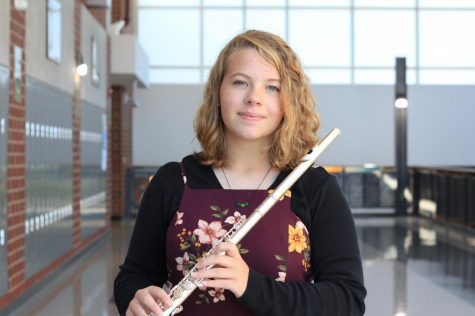
Kate is a dedicated member of Enloe's marching band, as well as an avid flute and piccolo player outside of school. She enjoys writing and learning foreign...


